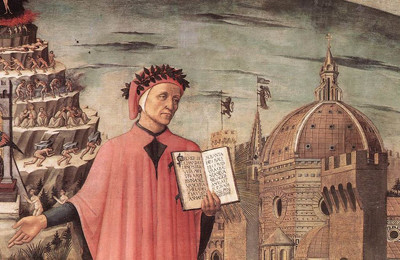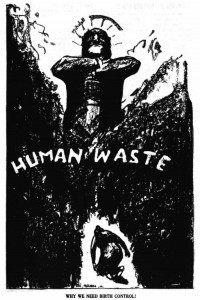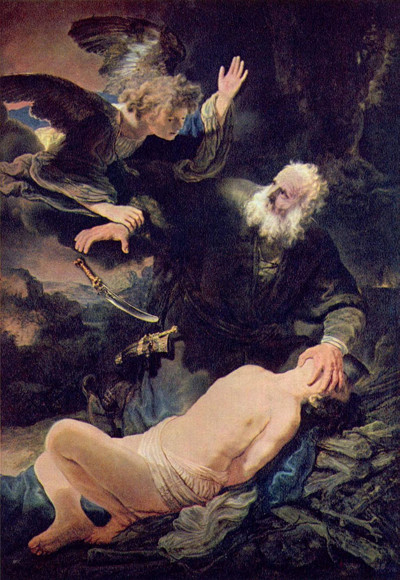Dante Watches Planned Parenthood Video #10
"O, my god, Gonads!"
Carolyn Westhoff, senior medical adviser for Planned Parenthood Federation of America, gave us an unwelcome glimpse of America’s seamy underside when she told an undercover reporter from the Center for Medical Progress that her baby-parts customers “want particular tissues. They want cardiac or they want eyes or they want neural. People want spinal cords. So I mean, that sort of thing. Certainly everything we provide – oh, gonads. Ohmigod, gonads.”
Then she went on to sound like a manager at Lyfe Kitchen or Chipotle, boasting,
“Everything we provide is fresh.”
 Freshness is essential, since Planned Parenthood and its medical partners are cannibalizing unborn children for parts. With this new video, we leave the realm of medicine and even politics, and wander back into the dank, haunted realm of Grimm’s fairy tales — not the cleaned up, Disneyfied versions, where happy endings are mandatory, but the eerie, uncanny tales that the Grimms transcribed at first. In that world, witches who crave youth and beauty will drain it from newborn infants. Wolves with human cunning prowl the woods, hunting for helpless children. Blood-drinkers abound who know that they can steal the life of innocents, and use it to drag out their own. Today instead of primitive, Satanic magic, we use Promethean science to make such nightmares come true.
Freshness is essential, since Planned Parenthood and its medical partners are cannibalizing unborn children for parts. With this new video, we leave the realm of medicine and even politics, and wander back into the dank, haunted realm of Grimm’s fairy tales — not the cleaned up, Disneyfied versions, where happy endings are mandatory, but the eerie, uncanny tales that the Grimms transcribed at first. In that world, witches who crave youth and beauty will drain it from newborn infants. Wolves with human cunning prowl the woods, hunting for helpless children. Blood-drinkers abound who know that they can steal the life of innocents, and use it to drag out their own. Today instead of primitive, Satanic magic, we use Promethean science to make such nightmares come true.
It’s midnight in America.
 What haunted me most in these notes from our underground were a few of Westhoff’s tossed-off words, which if we unpack them explain how we landed in our present circle of Hell. To parse them, I will use Dante’s own method of textual interpretation, which finds in every line of scripture a fourfold meaning. Let us read Westhoff’s words precisely, and draw out their meaning slowly, even surgically — which seems only fair, under the circumstances. Here they are again:
What haunted me most in these notes from our underground were a few of Westhoff’s tossed-off words, which if we unpack them explain how we landed in our present circle of Hell. To parse them, I will use Dante’s own method of textual interpretation, which finds in every line of scripture a fourfold meaning. Let us read Westhoff’s words precisely, and draw out their meaning slowly, even surgically — which seems only fair, under the circumstances. Here they are again:
Oh, gonads. Ohmigod, gonads.
What Westhoff thinks she means here is simply that the market demand for the severed, stolen testicles and ovaries of butchered babies is robust, even thriving. Buyers are screaming for these, and it’s all she and her colleagues can do to feed that hunger and quiet their crying. Dante would have called this the “Literal” sense of the text.
But Westhoff’s words resonate on many levels. In another context, we could understand them as a cry of excitement, of ecstatic desire as a lover reveals his nakedness. A classic example of this can be found in the biblical Song of Songs:
O that you would kiss me with the kisses of your mouth!
For your love is better than wine,
your anointing oils are fragrant,
your name is oil poured out;
therefore the maidens love you. (Song of Songs 1: 1-3)
Westhoff, as a modern author, is more straightforward — and as a medical professional, more frankly biological. Her exclamation could be equally transcribed as the sexually enthusiastic cry:
Oh… gonads. Oh my God… gonads!
In another situation, perhaps with a lover who joins her in the sexual liberation from offspring that Planned Parenthood promises, Westhoff might let loose with such an erotic cry.
But the context in which we hear her words is rather different. She is speaking abstractly, to a stranger, revealing (quite unintentionally) the scope of her daily work and the values that underlie it. So it is surely more accurate to render her apostrophe this way:
O gonads! O, my God, Gonads.
We see here a straightforward declaration of faith, an invocation of the deity Westhoff worships by its curiously plural name, “Gonads.” This confusion need not trouble us; a name commonly used by the ancient Hebrews for the one God they worshiped is “Elohim,” which is plural. Christian apologists would later see this as a foreshadowing of the Trinity. Perhaps Gonads is a single god, in two persons.
It might seem ironic that Westhoff and her organization worship Gonads, since Planned Parenthood’s primary aim since its beginnings has been not reproduction but its prevention. Gonads would seem directed toward fertility, not sterility. This paradox disappears when we recall that primitive fertility cults were aimed not simply at increasing reproduction, but controlling it — directing the fecund force of nature to serve the will of men. Indeed, many such cults in the Mediterranean world demanded the ritual killing of children — a practice repressed by the Hebrew prophets, a ritual which Planned Parenthood has led the way in reviving.
So now we have grasped what Dante called the “Moral” sense of the text, its meaning for us in everyday life: To worship the god Gonads and control its overwhelming power, we sacrifice little images of it, in the form of reproductive organs culled from discarded children. Their daily sacrifice on altars around the world does not give us life, like the Christian eucharist, but it guarantees our “liberty.”
This observation connects us with yet another level of meaning, which Dante termed “Typological.” Here we look for connections between the images, figures and actions in any given text and in analogous passage of the Old and New Testaments. We have already noted the infant sacrifices described (though not endorsed) by Hebrew prophets. Another powerful ante-type (or prefiguring) of Westhoff’s abortion practice can be found in Abraham’s abortive sacrifice of Isaac — the key divergence being, of course, that the real God ultimately rejected child sacrifice and rescued Isaac from death. The god Gonads makes starkly different demands, requiring that the sacrifice be not simply completed but repeated, some 300,000 times each liturgical year, by Planned Parenthood’s statistics.
Moving forward to the New Testament, the closest analogue we find to Westhoff’s religious rite is not the death of Jesus — a conscious adult who consented to be sacrificed to redeem the sins of others. Instead we must cite the earliest part of His story: King Herod, informed by the Magi of their quest for the infant Jesus, reacted to the news of a newborn “king” by decreeing a large-scale sacrifice of his own, in the form of the newborn children in Bethlehem.
These children were deemed by Christian theologians the first New Testament martyrs, and added to the calendar of saints under the collective title the “Holy Innocents.” Thus they served a crucial role in what Christians call the “divine economy” of salvation. The children whom Westhoff’s religious rites sacrifice also serve an economic purpose — first as the magnet for $500 million of U.S. government funding directed toward Planned Parenthood by statesmen who seek to save on poverty programs. But Westhoff and her co-religionists go further. Just as Native Americans are said not to have wasted a single part of any buffalo they hunted, out of their reverence for life, so Planned Parenthood preserves the remains of its sacrificial victims, and re-purposes them to economic benefit, and the further advancement of science.
The final level of meaning which Dante discerned in a text was the “Anagogical.” An anagogical reading looks not to the past but the future, and scrutinizes its significance as a piece of prophecy. Can a passage reveal either events to which we must look forward in days to come, or else uncover the meaning of future events that would otherwise puzzle us? Again, here Westhoff’s richly polyvalent utterance does not disappoint.
O gonads! O, my God, Gonads.
Realizing as we have that this is a profoundly religious utterance, we can understand now the long-term program of Westhoff’s spiritual movement. The god Gonads at once implants in us a radical excess of fertility, and then demands that we sacrifice a portion of its fruits to that god’s greater glory. Absent such a sacrifice, the sheer explosive force of reproduction would overwhelm us with what the prophetess Margaret Sanger warned was “human waste,” choking off our freedom and our economic well-being. We must therefore carefully cull the poor, or gull them into doing the job themselves. In a profound paradox of faith, the very statesmen who speak on behalf of the poor are those who champion this sacrifice, leading these peaceful lambs to the very brink of the altar.









